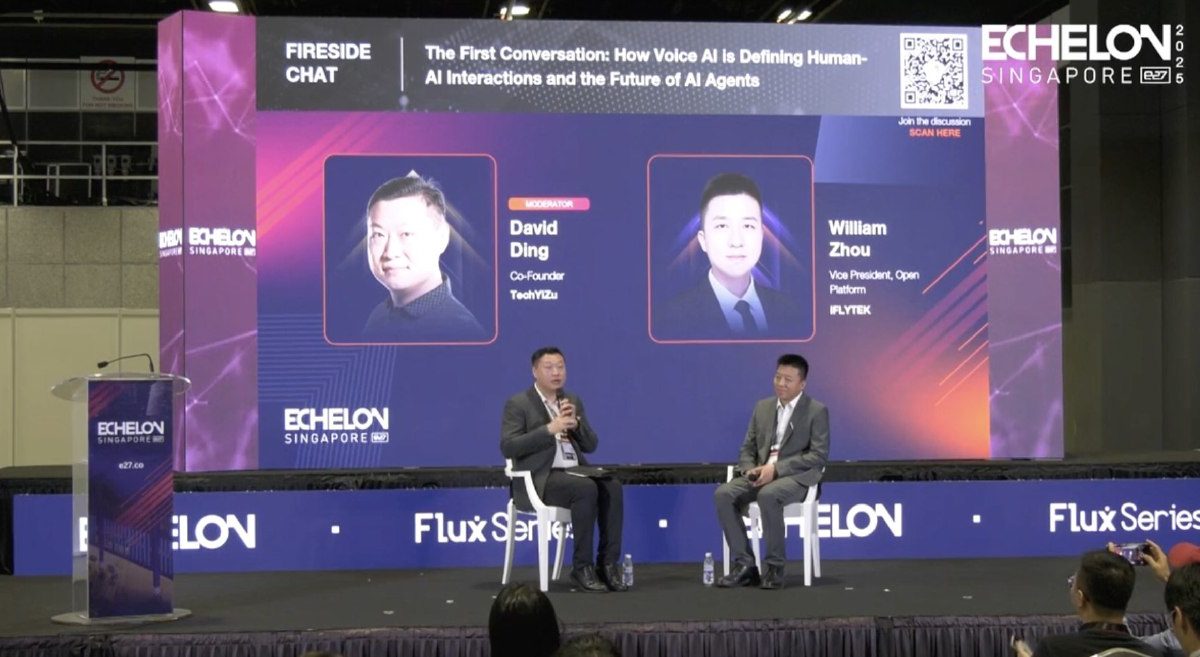Revolutionizing Dialogue: Echelon Singapore 2025 Explores Voice AI’s Impact on Humanity
Echelon Singapore 2025 – The first conversation: How voice AI is defining human-AI interactions and the future of AI agents
As the digital landscape evolves, the role of voice AI continues to solidify itself at the forefront of technological innovation. At Echelon Singapore 2025, a riveting conversation led by industry leaders David Ding from TechYizu and William Zhou from iFlyTek illuminated the potential pathways for voice AI in everyday applications. This discussion serves as a foundation for exploring future possibilities and hypothetical scenarios involving voice AI’s role in redefining human-AI interactions.
The Evolution of Voice AI
Voice AI has transitioned from a mere novelty to an essential tool in various sectors, including customer service, healthcare, and education. With advancements in speech-to-text, text-to-speech, and large language models, voice AI technology is becoming increasingly sophisticated. Consider a future where:
- AI agents seamlessly integrate into daily life, understanding context and emotions, which leads to more personalized and effective interactions.
- Noise cancellation and multi-language capabilities make these interactions accessible to a broader audience, breaking down communication barriers.
A Day in 2025: Hypothetical Scenarios
Imagine the typical day of a business professional in 2025, epitomizing the synergy between human and AI interactions:
- Mornings Start with AI Assistants: Upon waking, the voice AI assistant reviews their calendar, provides a briefing on the day’s tasks, and suggests top-priority items based on previous patterns and preferences.
- Real-Time Translations in Meetings: During a crucial video conference with international clients, the voice AI translates real-time conversations, allowing seamless interaction without language barriers.
- Customer Service Transformation: Businesses leverage voice AI to handle customer inquiries round the clock, resolving complaints and providing product information with enhanced emotional understanding and responsiveness.
Benefits for Businesses
Integrating voice AI into business operations can yield significant benefits:
- Enhanced Customer Engagement: Voice AI can provide personalized experiences tailored to individual preferences, leading to increased customer satisfaction.
- Operational Efficiency: Automating customer service with voice AI reduces workload, allowing human employees to focus on more complex tasks.
- Cost Reduction: With improved efficiency, businesses can lower operational costs while increasing output quality.
Examples of Average Benefits’ ROI
As businesses adopt voice AI, several tangible returns on investment can be observed:
- A company integrating voice AI in customer support can experience a 30% reduction in response time, leading to a 20% increase in customer retention.
- Companies investing in voice AI for internal communications can reduce meeting times by 25%, translating to significant savings in labor costs.
Actions for Businesses to Implement Benefits
To harness these benefits, businesses should consider the following actions:
- Evaluate Current Communication Systems: Businesses must assess their existing systems to identify areas where voice AI can integrate effectively.
- Invest in Training: Employees should receive training to work alongside voice AI, ensuring smooth collaboration between humans and technology.
- Pilot Programs: Implementing pilot programs can help gauge effectiveness, allowing businesses to refine their approach before wider rollout.
Conclusion: The advancements in voice AI present unparalleled opportunities for redefining human-AI interactions, driving operational efficiencies, and enhancing customer experiences. As we look toward the future, it is critical for businesses to adopt these technologies to remain competitive and relevant.
Are you ready to explore how voice AI can transform your business operations? Schedule a consultation with our team today!


